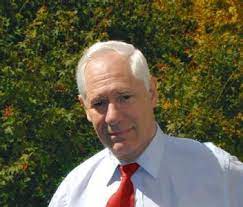Frank, Andre Gunder

Bio: (1929-2005) American economic historian and sociologist. Andre Gunder Frank was born in Germany, but his parents had to flee Germany because the Nazis come to power. He came to the United States with his parents in 1941, where he earned a doctorate in economics from the University of Chicago. Frank had a fruitful international career, as he engaged in scientific work in the USA, Brazil, Chile, Germany, Great Britain, and the Netherlands.
While working in Chile from 1964 to 1973, he published several books that made him one of the most important representatives of the dependency theory approach. In that period, his theory was based, above all, on the study of the situation in South America. Classical Marxist theory viewed Latin America as a semi-feudal society, while modernization theories explained the region's economic backwardness as incomplete modernization and an underdeveloped capitalist economy. Frank rejects both interpretations. Although he accepts the Marxist view of economics and classes, Frank thinks that to explain the situation in Latin America, it is necessary to apply Marxist theory differently. He believed that since the beginning of European colonization, Latin America has been exploited by the greatest colonial powers. The essence of the underdevelopment of this region was external political, economic, and cultural influences on national development policies.
After gaining independence, Latin American countries continued to be subject to colonial economic logic - they continued to export a small number of unprocessed raw materials, which did not yield large profits. The dynamics of the relationship between the center and the periphery, after gaining independence, were maintained through the local lumpenbourgeoisie, which, in addition to economic, also achieved political domination. That domination was maintained through the economic, political, and military support of the West, all to preserve neo-colonial relations. The most dramatic example of such "support" is the coup (organized by the CIA) in Chile in 1973 when the socialist president Allende was removed and General Pinochet was brought to power. He immediately began to implement neoliberal economic measures, as well as military terror and dictatorship. It was because of this coup that Frank had to leave Chile.
In the early eighties of the twentieth century, Frank began to become intellectually attached to the world-systems theory of Immanuel Wallerstein, so the two of them began a direct collaboration. During this period, Frank studied social crises and movements within the world system. In the middle of the last decade of the twentieth century, he rejected the world-systems theory and began to study the five-thousand-year-long history of the Asian economic system.
Main works
The Development of Underdevelopment (1966);
Capitalism and Underdevelopment in Latin America: Historical Studies of Chile and Brazil (1967);
Latin America: Underdevelopment or Revolution (1969);
Sociology of Development and Underdevelopment of Sociology (1971);
Lumpenbourgeoisie, Lumpendevelopment (1972);
On Capitalist Underdevelopment: Economic Genocide in Chile (1975);
Equilibrium on the Point of a Bayonet (1976);
World Accumulation: 1492–1789 (1978);
Dependent Accumulation and Underdevelopment (1978);
Crisis: In the World Economy (1980);
Crisis: In the Third World (1981);
Reflections on the World Economic Crisis (1981);
Dynamics of Global Crisis (1982);
The European Challenge (1983);
Critique and Anti-Critique (1984);
The World System: Five Hundred Years or Five Thousand? (1996);
ReOrient: Global Economy in the Asian Age (1998).

